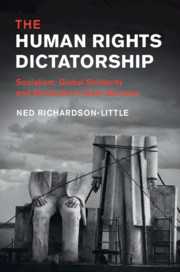Refine search
Actions for selected content:
6 results
11 - Human Rights and Democracy
- from Part II - Current Issues
-
- Book:
- U.S. and Latin American Relations
- Published online:
- 08 December 2022
- Print publication:
- 01 December 2022, pp 293-324
-
- Chapter
- Export citation
4 - The End of the Ideological Age
-
- Book:
- Poland's Solidarity Movement and the Global Politics of Human Rights
- Published online:
- 28 May 2021
- Print publication:
- 10 June 2021, pp 91-106
-
- Chapter
- Export citation
3 - The Principle of Noninterference as Laid Down in the Helsinki Final Act
-
- Book:
- Poland's Solidarity Movement and the Global Politics of Human Rights
- Published online:
- 28 May 2021
- Print publication:
- 10 June 2021, pp 66-90
-
- Chapter
- Export citation
3 - Socialist Human Rights on the World Stage, 1966–1978
-
- Book:
- The Human Rights Dictatorship
- Published online:
- 06 April 2020
- Print publication:
- 23 April 2020, pp 97-137
-
- Chapter
- Export citation
4 - The Ambiguity of Human Rights from Below, 1968–1982
-
- Book:
- The Human Rights Dictatorship
- Published online:
- 06 April 2020
- Print publication:
- 23 April 2020, pp 138-179
-
- Chapter
- Export citation

The Human Rights Dictatorship
- Socialism, Global Solidarity and Revolution in East Germany
-
- Published online:
- 06 April 2020
- Print publication:
- 23 April 2020
